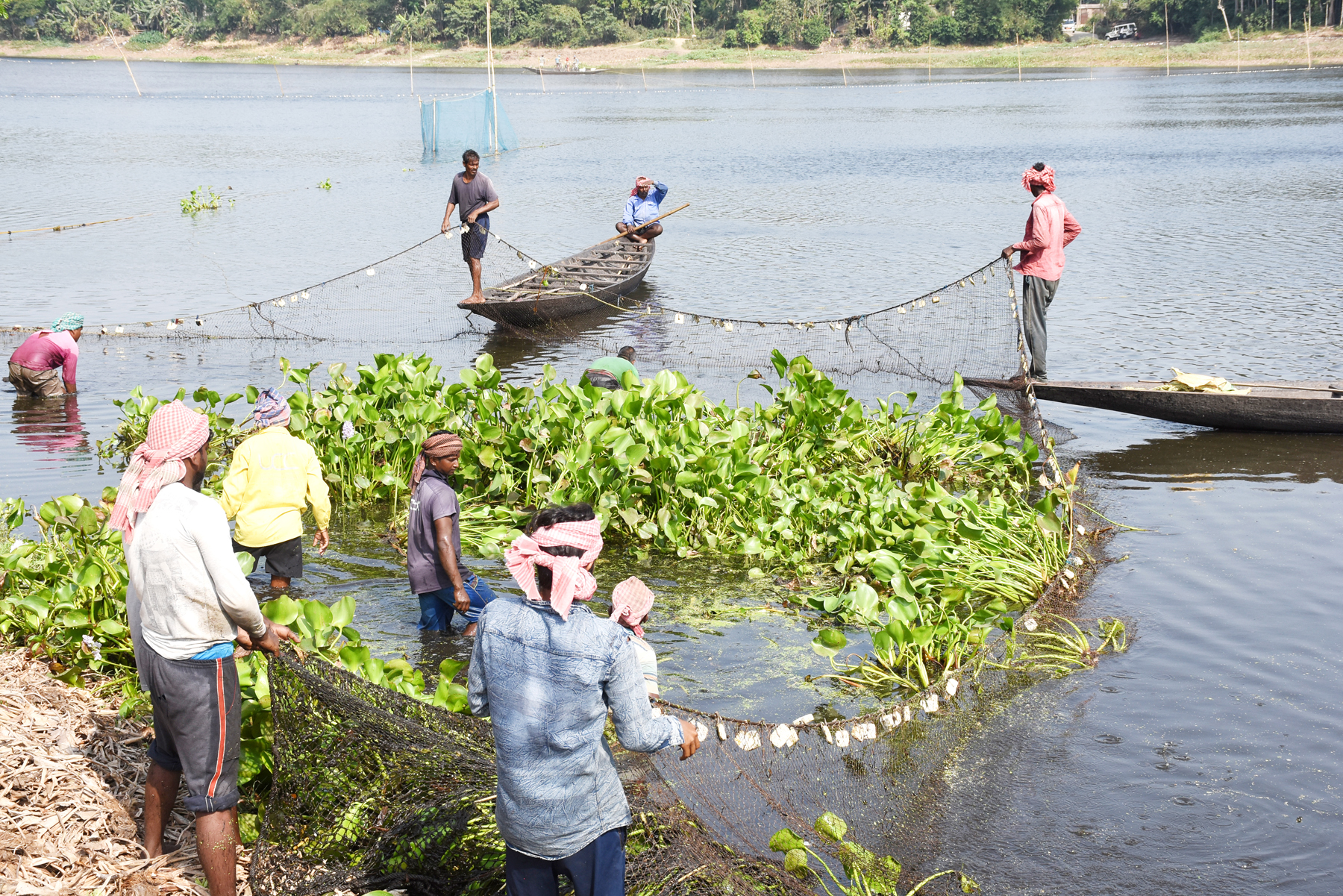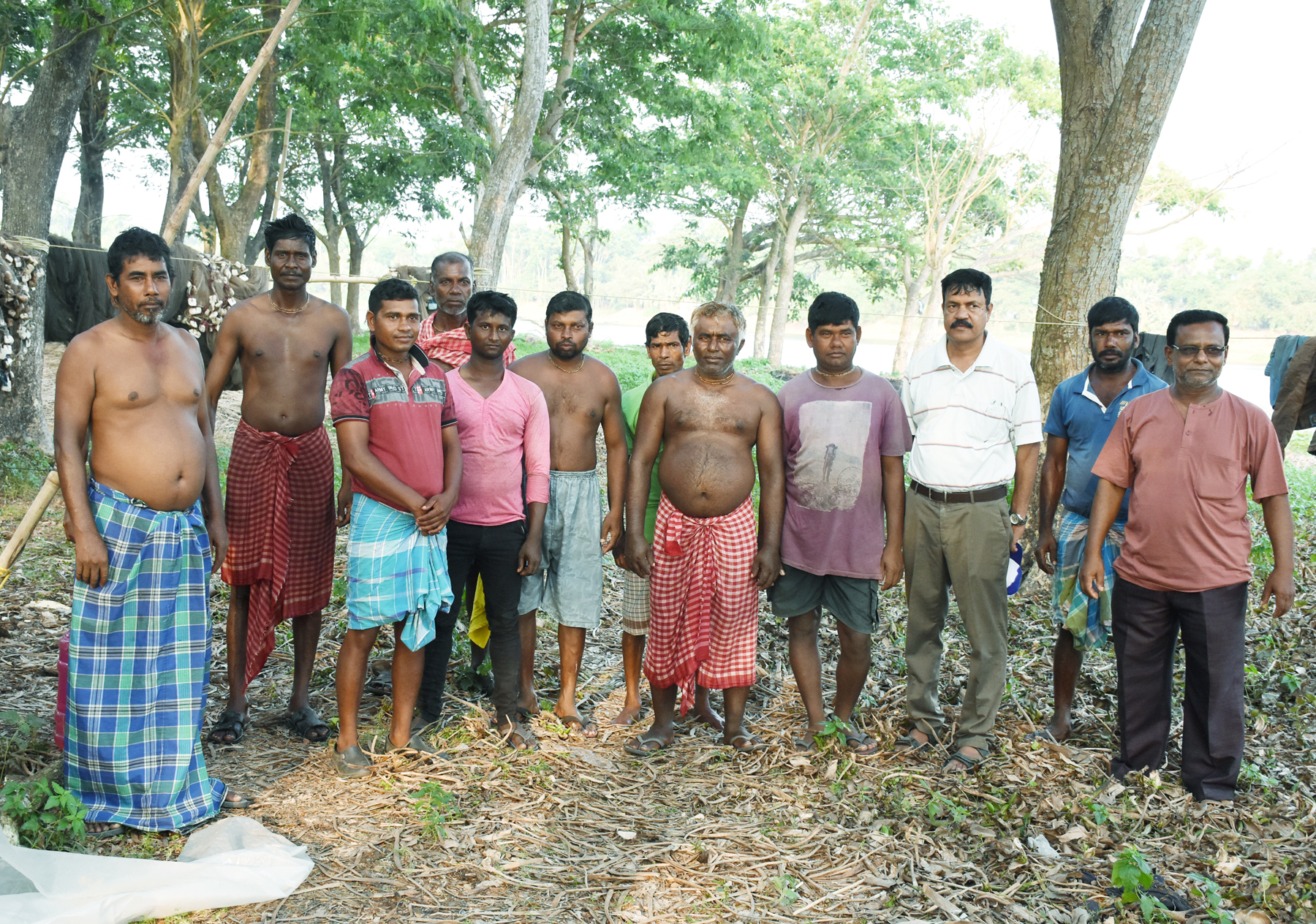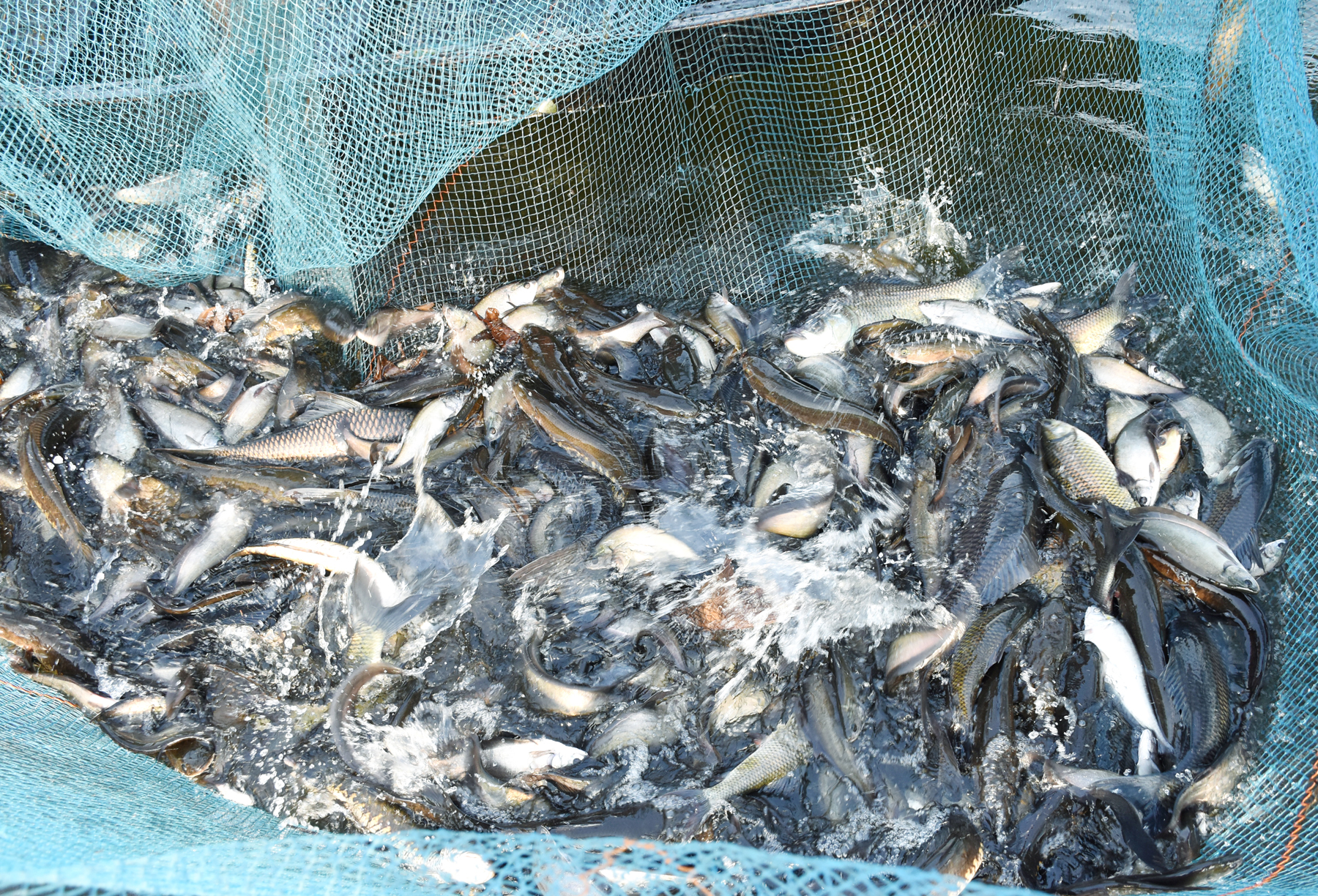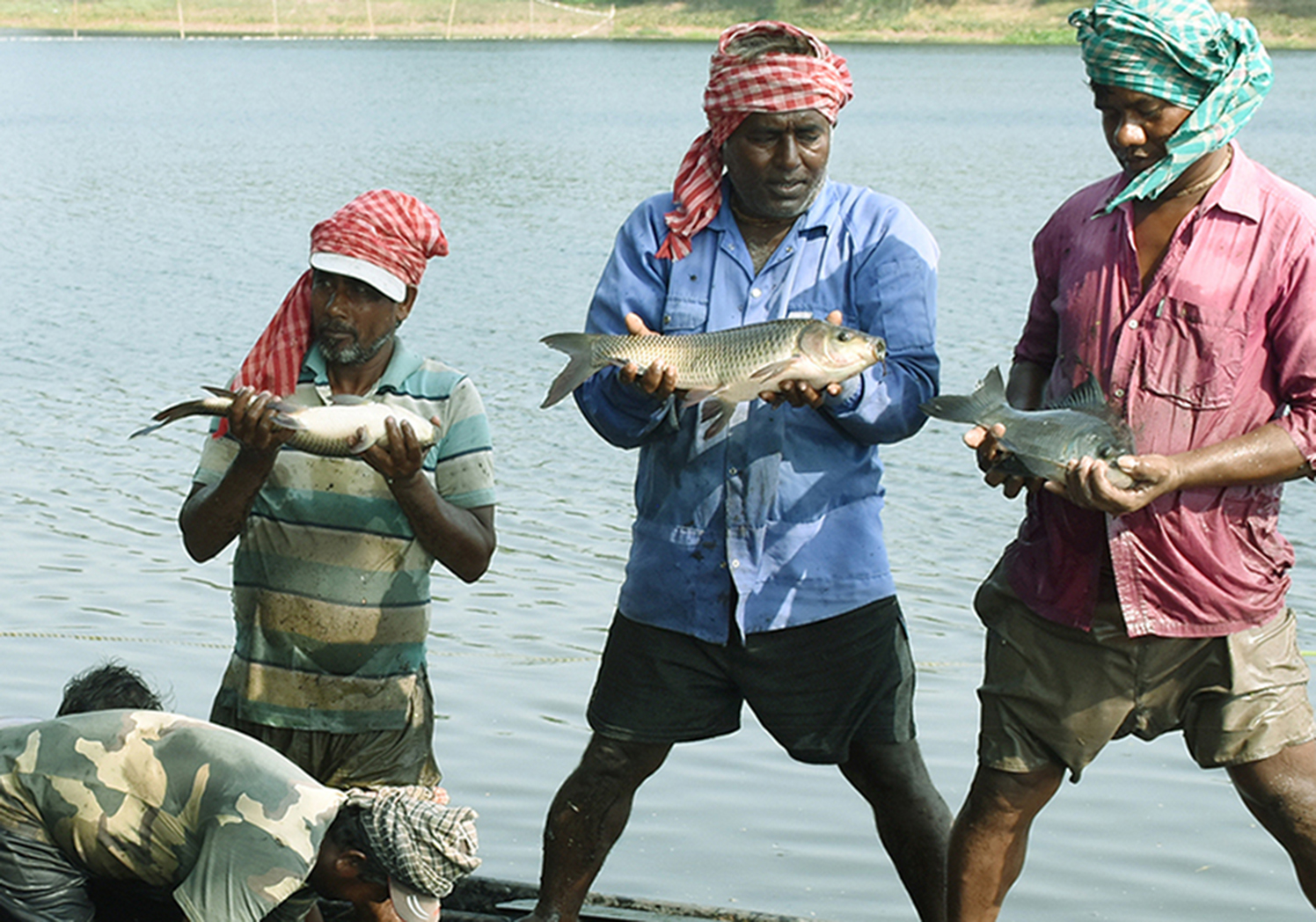Overview
Publications
Recruitment
Intranet
CIFRI Corners'
ICAR-CIFRI is working on the production enhancement strategy in wetlands under SCSP in various wetlands of West Bengal. Duma in North 24 Parganas of West Bengal is one of the largest horseshoe-shaped wetland of Asia having an area of 257 ha with a water depth of 8 - 17 ft. The management right of the wetland is with Duma Fishermens’ Cooperative Society Ltd with 1081 members including 30 women fishers. The fisherfolk families of 9 villages surrounding Duma wetland are fully dependent on this wetland.














